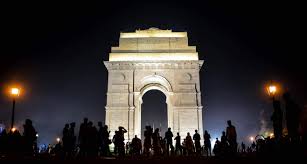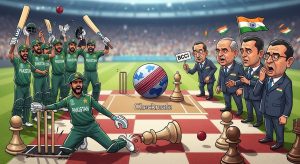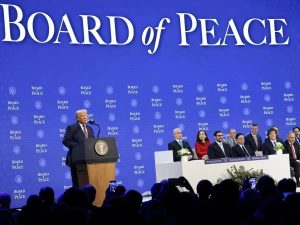A potential 250% tariff on Indian pharmaceuticals, threatened under the banner of American national security, is far more than a trade dispute. It is the sound of a geopolitical myth shattering. For years, New Delhi has operated under the powerful illusion that it was the indispensable exception to the rules of global power politics. It believed it could walk a diplomatic tightrope, benefiting from Western markets and defence partnerships while simultaneously deepening ties with adversaries like Russia. That illusion is now facing a brutal dose of reality, and the consequences could trigger an industrial disaster for India.
The numbers alone are staggering. The United States is not just a market for India’s $50 billion pharmaceutical industry; it is its lifeblood, accounting for nearly $10 billion in exports. One in every three generic pills consumed by Americans is made in India. A tariff shock of the magnitude proposed would not merely hurt; it would obliterate. With razor-thin margins, major firms like Sun Pharma, Cipla, and Dr. Reddy’s Laboratory simply cannot absorb such a blow. The threat is an existential one, designed to force a catastrophic choice: either abandon a core economic pillar or bow to Washington’s demands. The likely outcome would be a mass exodus of manufacturing to the United States, dismantling one of modern India’s proudest industrial success stories.
But this isn’t just about medicine. This punitive measure is the direct consequence of India’s stubborn insistence on bankrolling Vladimir Putin’s war economy through massive purchases of Russian oil. Despite countless summits, defense deals, and trade concessions, Washington has finally told New Delhi in blunt, unmistakable terms that its diplomatic free pass is over. India can no longer expect preferential access to the world’s most lucrative market while actively undermining its strategic interests. The era of having it both ways is collapsing under the weight of its own contradictions.
From Islamabad, this development is viewed as a quiet, decisive validation. While India pursued a loud, hubristic foreign policy, Pakistan’s more patient and subtle diplomatic recalibration appears to be yielding results. Suddenly, New Delhi is on the back foot. From its faltering influence over the Kashmir narrative to its diluted position within BRICS and now its stark rebuke from the White House, the regional tempo is no longer being set by India. For the first time in a decade, Islamabad finds itself in the unaccustomed position of not having to play catch-up.
This moment also presents a profound and uncomfortable irony for the Indian public. For a nation whose online discourse is frequently dominated by jingoistic calls to “boycott” the goods of any country that dares to cross it, this is a taste of its own medicine on an unimaginable scale. Will the same voices that demand others be punished for perceived slights now lead the charge to toss their Apple iPhones, Nike sneakers, and Adidas sportswear from their windows? Or will they come to realize that economic nationalism is a weapon that cuts both ways?
The message from Washington is clear: the calculus has changed. India’s belief in its own diplomatic invincibility has been exposed as a dangerous fantasy. It now faces a moment of reckoning, forced to choose between the pragmatic demands of economic reality and a foreign policy that has finally been called to account. This isn’t just a challenge; it is a fundamental downgrading of its place in the world order, a bitter pill that will be hard to swallow.














